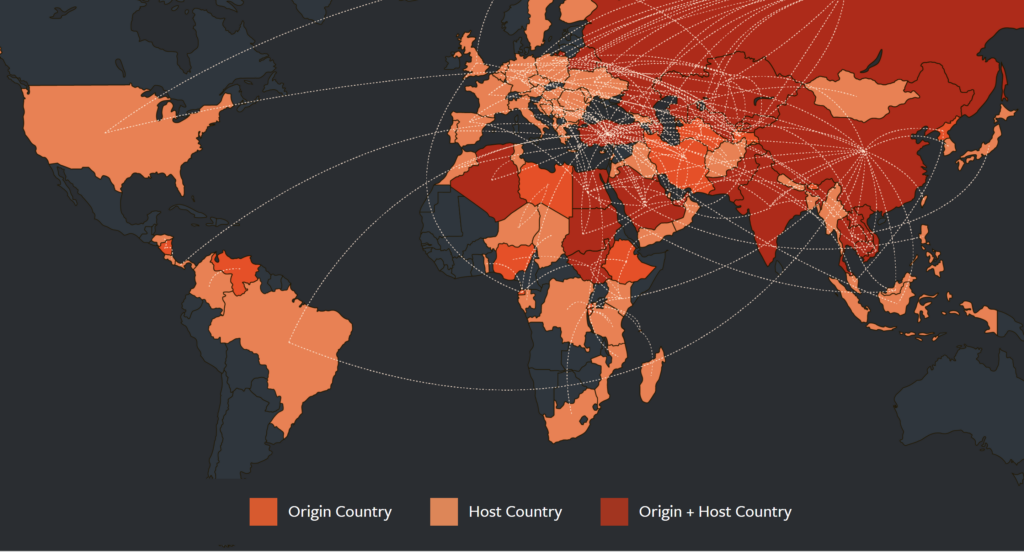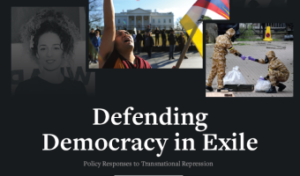
Credit: Freedom House
The Chinese government is the world’s most prolific perpetrator of transnational repression, accounting for 253 incidents, or 30 per cent of all recorded cases of direct, physical transnational repression since 2014, according to a new report by Freedom House.
 More governments are committing more acts of transnational repression, turning to violence and other brutal tactics to silence dissent beyond their borders, says the report —Still Not Safe: Transnational Repression in 2022. Twenty governments were responsible for 79 incidents of physical transnational repression in 2022, with Djibouti and Bangladesh emerging as perpetrator states for the first time.
More governments are committing more acts of transnational repression, turning to violence and other brutal tactics to silence dissent beyond their borders, says the report —Still Not Safe: Transnational Repression in 2022. Twenty governments were responsible for 79 incidents of physical transnational repression in 2022, with Djibouti and Bangladesh emerging as perpetrator states for the first time.
“Despite growing awareness of the problem, more authoritarian governments are attempting to exert control over diaspora and exile communities,” said Michael J. Abramowitz, president of Freedom House. “This latest research shows that the threat posed by transnational repression is not going away, and that democratic societies must work harder to protect themselves and their fundamental values.”
At least 854 direct, physical incidents of transnational repression have been committed by 38 governments in 91 countries since 2014, including assassinations, abductions, assaults, detentions, and unlawful deportations, the authors add. China, Turkey, Tajikistan, Russia and Egypt ranked as the most prolific perpetrators.
 “People who criticize authoritarian regimes, whether they are professional journalists [such as Iranian journalist Masih Alinejad] or ordinary citizens, are often singled out for harassment and even violence,” said Yana Gorokhovskaia, Freedom House’s research director for strategy and design. “The world cannot allow these repressive governments to restrict media freedom and personal expression abroad even as they shut down independent outlets at home.”
“People who criticize authoritarian regimes, whether they are professional journalists [such as Iranian journalist Masih Alinejad] or ordinary citizens, are often singled out for harassment and even violence,” said Yana Gorokhovskaia, Freedom House’s research director for strategy and design. “The world cannot allow these repressive governments to restrict media freedom and personal expression abroad even as they shut down independent outlets at home.”
China’s use and misuse of the Interpol Red Notice system is dangerously close to damaging Interpol beyond repair, reports suggest.
“Uyghurs in the diaspora all have two common experiences. One is they had or still have family in the internment camps or prisons,” Uyghur researcher Nyrola Elima told the UK House of Lords last week. “The second is they have all been facing transnational repression from the Chinese Government.”
The report was made possible through the generous support of the Achelis and Bodman Foundation and the National Endowment for Democracy (NED).







